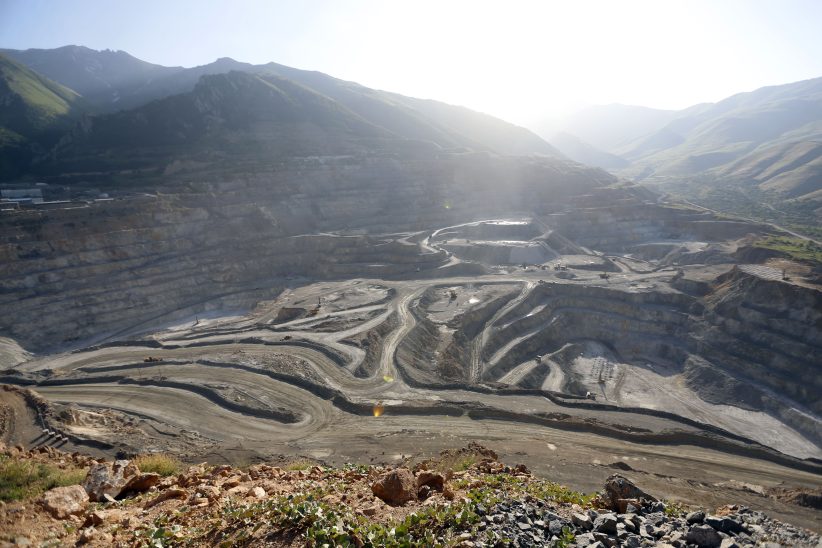By Mark Dovich
Walnort Finance, a Cyprus-registered shell company that owns a 12.5% stake in the Zangezur Copper-Molybdenum Combine, Armenia’s biggest mine, filed a $1.2 billion arbitration claim against the Armenian government last Friday — the biggest lawsuit the government has ever faced.
In a filing with the World Bank’s International Center for Settlement of Investment Disputes in Washington, D.C., Walnort alleges that the Armenian government undertook a “politically motivated campaign” to deprive it of its “legitimate shareholder rights” and claims that it only brought the issue to arbitration after the government rebuffed repeated attempts to negotiate.
The compensatory damages Walnort is demanding are equal to just under a quarter of the Armenian government’s total budget last year.
There was no immediate reaction from the government.
What’s the background?
The case stems from the October 2021 takeover of the Zangezur mine by Roman Trotsenko, a prominent Russian oligarch with close ties to President Vladimir Putin.
Immediately after securing 75% ownership of the mine, Trotsenko ceded a minority stake to the Armenian government without explanation. The government has since increased its share in the mine to 21.8%. Officials have repeatedly refused to comment on the matter.
Walnort has previously challenged the legality of Trotsenko’s takeover in Armenian courts, arguing it was entitled to a right of first offer. The courts have turned down all of Walnort’s requests to invalidate those deals.
Why is Zangezur so important?
The Zangezur mine paid nearly $175 million in taxes in Armenia last year, making it the single biggest contributor to the country’s state coffers and accounting for more than 3% of the government’s total tax earnings. One of the world’s top molybdenum producers, it employs some 4,000 people in Armenia’s southernmost Syunik region.
Zangezur has long had an opaque ownership structure that has made it difficult for reporters and the general public alike to understand who ultimately controls, and benefits from, the operation.
Confusion only grew last November, when Zangezur suddenly claimed it had cut all ties with Trotsenko, listing its biggest shareholder instead as Svetlana Yershova, a Russian citizen with known business links to the oligarch.
Days after the mine said it had ended its relationship with Trotsenko, the United States sanctioned nearly two dozen entities associated with the oligarch, but notably not Geopromining, the Russian company that operates Zangezur through a web of subsidiaries.
The U.S. Treasury and State Departments followed up on those actions in February, when they blacklisted Geopromining and a number of related companies, though significantly, not any of the subsidiaries that directly operate Zangezur.
In response, the mine insisted that “no international sanctions are applicable to the company.”
What’s the context?
Under Prime Minister Nikol Pashinyan, the Armenian government has moved to take substantial minority stakes in a number of large and strategically important enterprises, often in unclear circumstances. Aside from Zangezur, that also includes Amulsar, a long-stalled gold mining project, and Viva-MTS, a major telecommunications company.
Armenia has considerable deposits of copper, gold, and molybdenum, and the mining industry is one of the country’s biggest sources of employment and government revenue. Many of Armenia’s mines are controlled by Russian companies.
















